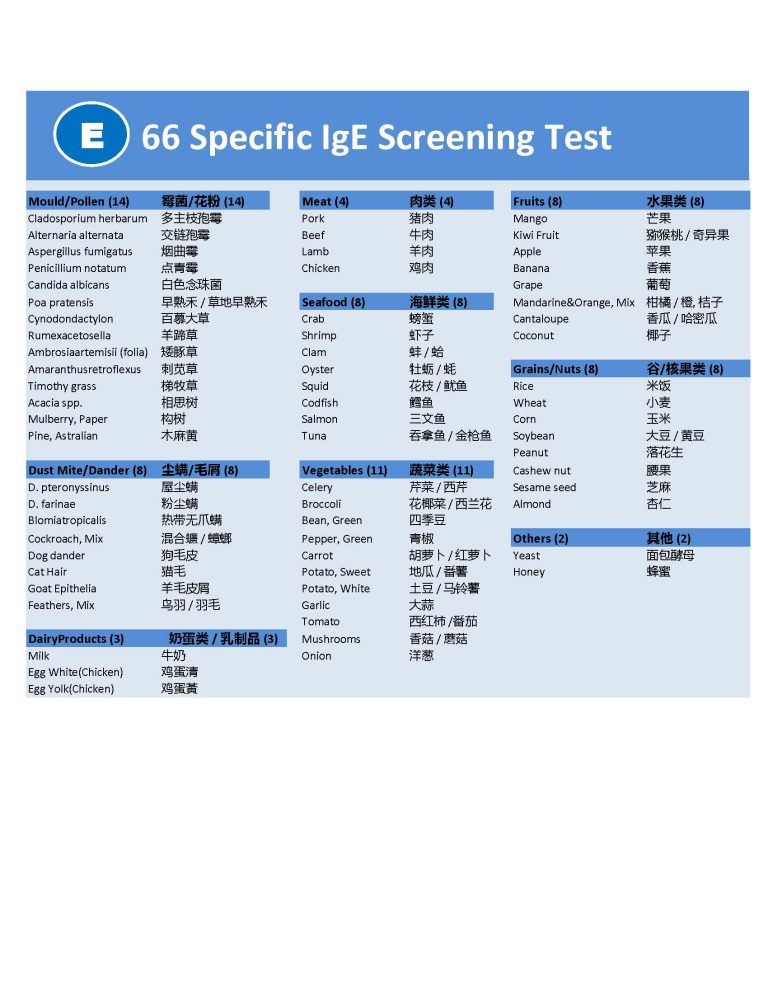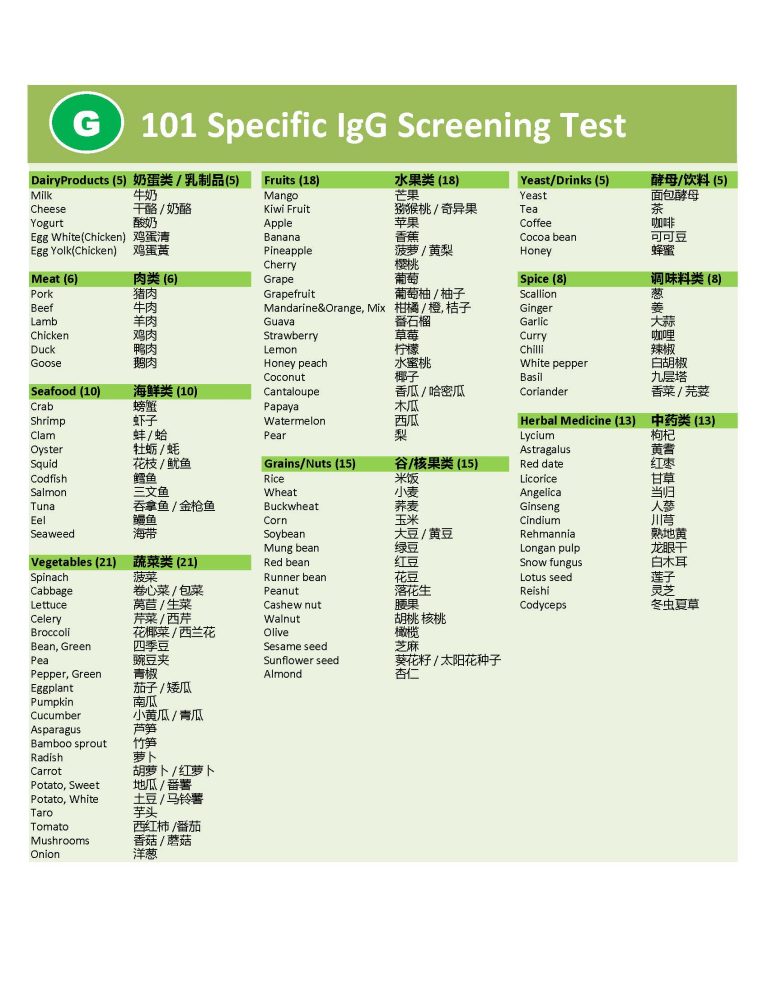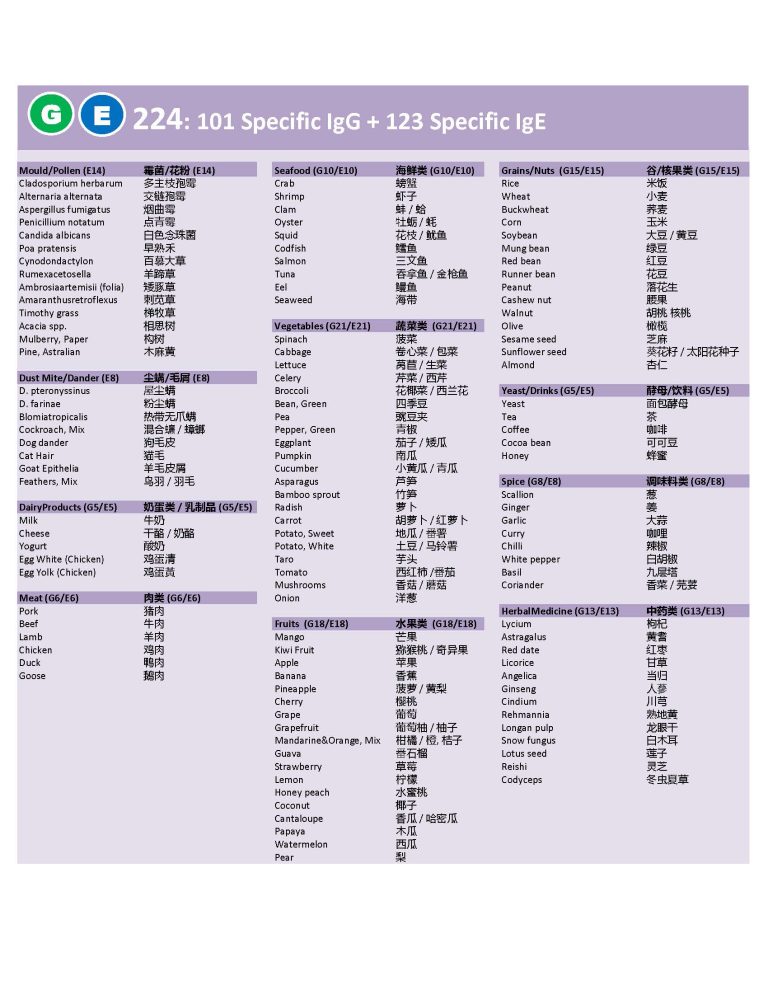Assessment
Allergy Test
Why an Allergic Test?
When the immune system misidentifies harmless substances, whether inhaled or ingested, it triggers a range of allergic symptoms, from acute to chronic. Acute allergies can pose immediate dangers, sometimes leading to life-threatening situations. Meanwhile, chronic allergies exert a prolonged strain on the body, contributing to persistent inflammation, the generation of harmful free radicals, and potentially accelerating the aging process and the development of chronic illnesses.
Having an accurate method to pinpoint allergens capable of triggering allergic reactions is essential. This involves understanding the role of immunoglobulin E (IgE) and immunoglobulin G (IgG) antibodies in allergic responses. IgE antibodies are typically associated with immediate hypersensitivity reactions, such as those seen in acute allergic responses, while IgG antibodies may play a role in delayed hypersensitivity reactions, often observed in chronic allergies.
Therefore, undergoing allergy testing, which can detect both IgE and IgG antibodies specific to various allergens, provides invaluable insight for making informed lifestyle adjustments to effectively manage allergies. This proactive approach allows individuals to identify and avoid specific triggers, minimizing the risk of allergic reactions and potential complications associated with chronic inflammation and oxidative stress.
Moreover, undergoing allergy testing serves as a preventive measure, potentially saving lives by identifying severe allergies before they escalate into life-threatening situations. By understanding and addressing allergic triggers early on, individuals can better safeguard their health and well-being, leading to improved overall quality of life.
Allergic Test in Malaysia
Immunoglobulin E (IgE)
Immunoglobulin E (IgE) is an antibody produced by the immune system that plays a key role in allergic reactions and immune responses to parasites. Elevated IgE levels may indicate allergies or certain infections.

Immunoglobulin G (IgG)
Immunoglobulin G (IgG) is the most abundant antibody in the blood and extracellular fluid, providing long-term immunity by neutralizing pathogens and facilitating their removal. It is crucial for immune defense and is often measured to assess immune response.

Frequently Asked Question
By a simple blood test.
Fasting is not necessary as this involves DNA.
Lorem ipsum dolor sit amet, consectetur adipiscing elit. Ut elit tellus, luctus nec ullamcorper mattis, pulvinar dapibus leo.
By a simple blood test.
Fasting is not necessary as this involves DNA.
Lorem ipsum dolor sit amet, consectetur adipiscing elit. Ut elit tellus, luctus nec ullamcorper mattis, pulvinar dapibus leo.





